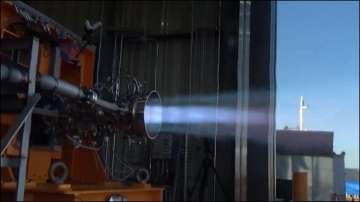In an interesting first-of-its-kind experiment, Japanese engineers tested a new rocket engine powered by liquid methane sourced from cow dung, which may lead to the development of a more sustainable propellant, according to The Independent. This marks a "world-first" test of liquid biomethane (LBM) of a rocket engine fuel.
The rocket engine has been dubbed 'Zero' and was kickstarted in a ten-second "static fire test" in Japan's Hokkaido Spaceport, said Interstellar Technologies Inc. (IST) in a statement. The LBM used in the small satellite launch vehicle was derived from "livestock manure" from Hokkaido's dairy farms, the company said.
The company also shared a video of the test on social media platform X, showing the rocket engine firing up and shooting a powerful horizontal blue flame. This follows the success of the European Space Agency’s (ESA) development of a rocket engine using the propellant.
Climate change mitigation
Several studies in the past have highlighted to the disadvantages of conventionally used rocket fuel, sparking concerns about the release of soot and other pollutants and greenhouse gases from burning propellants. This has accelerated efforts to find sources for more sustainable propellants to be used for rocket engines that can minimise environmental harm.
However, some research has also raised concerns about methane produced by belching cattle and other livestock that can contribute to global warming and climate change. Interstellar Technologies hopes to contribute to climate change mitigation by making the majority of rocket fuel sustainable.
“As a Hokkaido-based company surrounded by a thriving dairy industry, IST actively contributes to local energy self-reliance and environmental solutions,” it said.
Benefits of liquid methane
According to experts, liquid methane has considerable advantages over conventionally sourced rocket fuel, including in performance, ease of handling, availability and environmental impact. This has caused a demand for high-purity methane in rocket propellants.
The latest test centered around the conversion of biogas from livestock manure in the Hokkaido Tokachi area into LBM, which researchers claim is a sustainable alternative to liquid natural gas (LNG). However, it is important to note that methane itself is a potent greenhouse gas that can lead to a rise in global warming.
ALSO READ | SpaceX Starship rocket explodes eight minutes after launch
Latest World News
